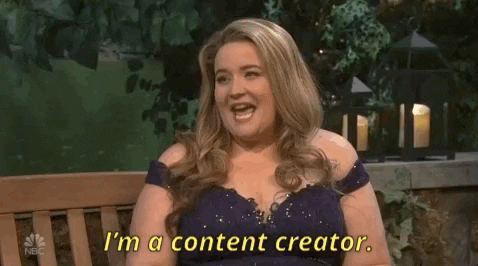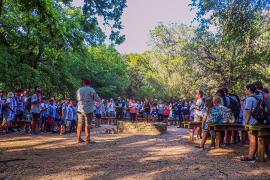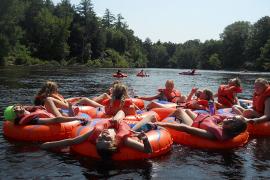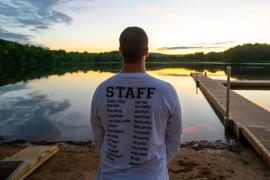After working at camp for a while, when you meet people who are considering a summer at camp, you almost get a sixth sense of determining if someone would be a good fit, or even what role you could see them in. A close friend seemed like a perfect fit for camp, and it turned out she had actually applied to work at a camp in her hometown. Unfortunately, she was turned down due to a lack of childcare experience. Everyone has a different path, and while I firmly believe the track my friend is on is an excellent fit for her, her rejection from this particular camp turned her away from camp all together.
In addition to honoring your “gut feelings,” it is also imperative to incorporate objective criteria into your recruitment process to help evaluate and communicate how well (or not) a person meets traditional expectations of a counselor. The inclusion of this criteria not only helps catch any individuals that your gut feeling did not get, but also serves as a tool for reviewing applicants equitably. Example criteria could range from availability, training or willingness to go through training, outdoor or recreation skills, maturity, or something else entirely. The crucial component is establishing what the criteria is and then adhering to it, used alongside gut feelings and initial impressions.
Typically, camp recruiters come and talk in education or recreation college courses at a nearby university or pull from camp alumni. By expanding recruitment to other disciplines (religion, sociology, psychology, engineering, literature), there is the chance for a more diverse and well-rounded staff team, as a major in college does not necessarily speak to the values and attitudes of an individual, or how well they will do at camp.
In addition to in-person recruitment, social media is a tool that can be extremely helpful, if used properly. Build an Instagram (or even TikTok) presence by articulating goals and then asking a former staff to take-over the camp account for the day. By tagging themselves, other staff are likely to share to their profiles and reach an entirely different audience. Video content is also engaging, and short interviews or saved stories with key staff at camp will help potential applicants connect with your camp’s mission and year-round team. Facebook has a wider generational spread and because parents still play a role in summer choices, we recommend not to abandon it. The goal is to create content they want to share so that it expands your reach.
Thoughts to Consider
1. A staff position can be just as developmentally significant as a camper’s experience. Give people a chance, i.e., recruit people with experiences beyond childcare or education, but with interests that align with your camp’s values.

2. Think about how positions are structured at camp, and if there’s a strong applicant who lacks certain experience, consider reframing positions to include staff members from a host of different backgrounds (not living with campers, support staff for programs, pairing staff together).

3. Targeted, engaging social media is a powerful tool! You don’t have to be an influencer to create quality content, just showcase your staff and program from an insider’s perspective.

4. No one likes to be ghosted, applicants or interviewers, but if it happens after reaching out again, move on to interested applicants, even those with different experiences than the bulk of potential hires.

5. You might not be able to give every potential applicant a chance, but you can help guide them towards an opportunity, whether that is another camp hiring for a position that will fit better, a counselor-in-training program, or even a link to a camp jobs Facebook group, so they won’t walk away from camp for good.

Every counselor, just like every camp, has different needs and expectations. It is impossible to accommodate every applicant, but these tips speak to the importance of approaching the recruitment process as an opportunity for initial staff development. Through the use of new social media platforms and technology, the recruitment process is also a time for continued professional development for year-round staff, as it is an opportunity to try new things. The needs of frontline staff continue to evolve, and these tips offer a foundation as how to build recruitment practices to better engage those individuals.
This post is adapted from “Exposing The Heart of Camp: Is There a Camp Staffer in All of Us?,” presented by Clemson University students with the assistance of Gwynn Powell, PhD in November 2019 at SCamp Con, the online summer camp conference. Please check out more information at summercampcon.com/.
Author Information: This blog was written by Katie Thurson ([email protected]), Ali Dubin, MS ([email protected]), and Gwynn Powell, PhD ([email protected]) as part of Project Real Job’s initiative to support camps with staff recruiting, hiring and retention efforts.
GIFs retrieved from giphy.com.
Photo courtesy of Des Moines Y Camp in Boone, Iowa
The views and opinions expressed by contributors are their own and do not necessarily reflect the views of the American Camp Association or ACA employees.




